The inaugural year of the Queen's Research Opportunities Funds awarded 25 researchers from across disciplines a chance to begin innovative projects and forge new collaborations with colleagues and scholars around the world. Listed below are short descriptions of each researcher and their proposed projects.
Recipients: John Allingham, Leon Boegman, Frances Bonier, Heather Castleden, Qingling Duan, Simon French, Mark Ormiston, Ishita Pande and Laura Wells.
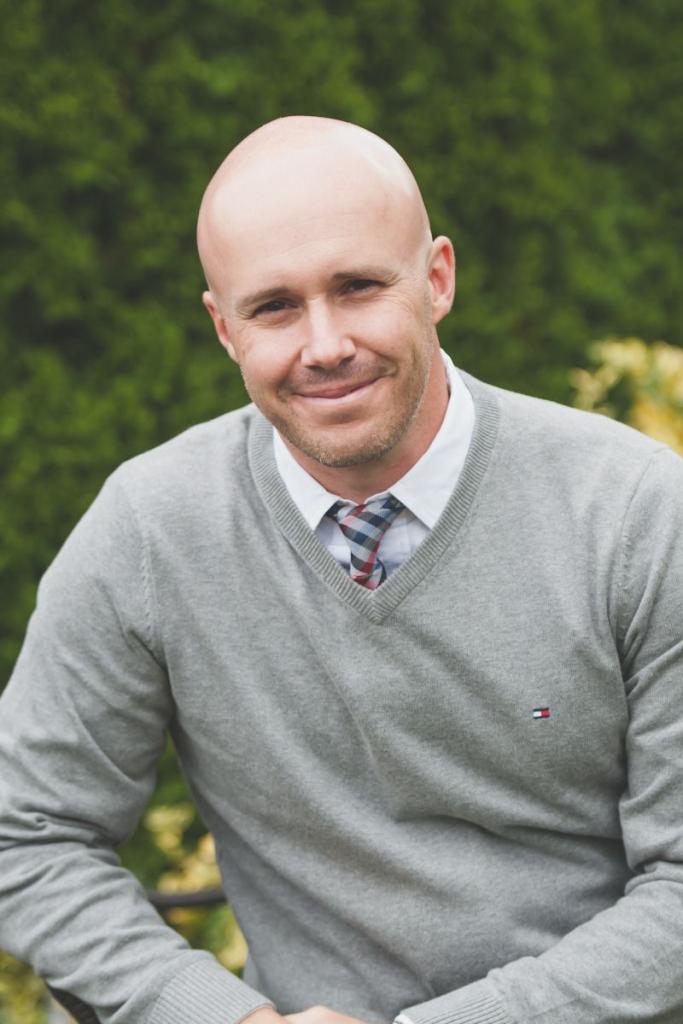 John Allingham - Dr. John Allingham is using the Research Leaders’ Fund to finance his project “Targeting the oncogenic kinesin motor protein KIF14 for cancer therapy.” Researchers in Canada and abroad have shown that the kinesin KIF14 is frequently overexpressed in cancer types including breast cancer and lung cancer ‒ an outcome that seems to be linked to amplification of a region of the human genome that harbors the KIF14 gene. Dr. Allingham and Dr. Benjamin Kwok at the University of Montreal have initiated studies of the structural and functional properties of the KIF14 protein in order to better understand its specific role(s) in tumor cell division and cancer proliferation, focusing on KIF14’s interaction with the main mediators of cell division. Through these studies, Dr. Allingham and his team hope to better understand the effects of chemical inhibition of KIF14 and potentially provide new avenues for understanding and treating the many cancers linked to overabundance of this kinesin. This could lead to lower costs to the healthcare system if KIF14-directed therapies prove to be more effective treatment options than some of the traditional anticancer regimens. In this and other important ways, Dr. Allingham’s project will benefit Queen’s reputation as a leader in cancer research and promote collaborations with other leading institutions.
John Allingham - Dr. John Allingham is using the Research Leaders’ Fund to finance his project “Targeting the oncogenic kinesin motor protein KIF14 for cancer therapy.” Researchers in Canada and abroad have shown that the kinesin KIF14 is frequently overexpressed in cancer types including breast cancer and lung cancer ‒ an outcome that seems to be linked to amplification of a region of the human genome that harbors the KIF14 gene. Dr. Allingham and Dr. Benjamin Kwok at the University of Montreal have initiated studies of the structural and functional properties of the KIF14 protein in order to better understand its specific role(s) in tumor cell division and cancer proliferation, focusing on KIF14’s interaction with the main mediators of cell division. Through these studies, Dr. Allingham and his team hope to better understand the effects of chemical inhibition of KIF14 and potentially provide new avenues for understanding and treating the many cancers linked to overabundance of this kinesin. This could lead to lower costs to the healthcare system if KIF14-directed therapies prove to be more effective treatment options than some of the traditional anticancer regimens. In this and other important ways, Dr. Allingham’s project will benefit Queen’s reputation as a leader in cancer research and promote collaborations with other leading institutions.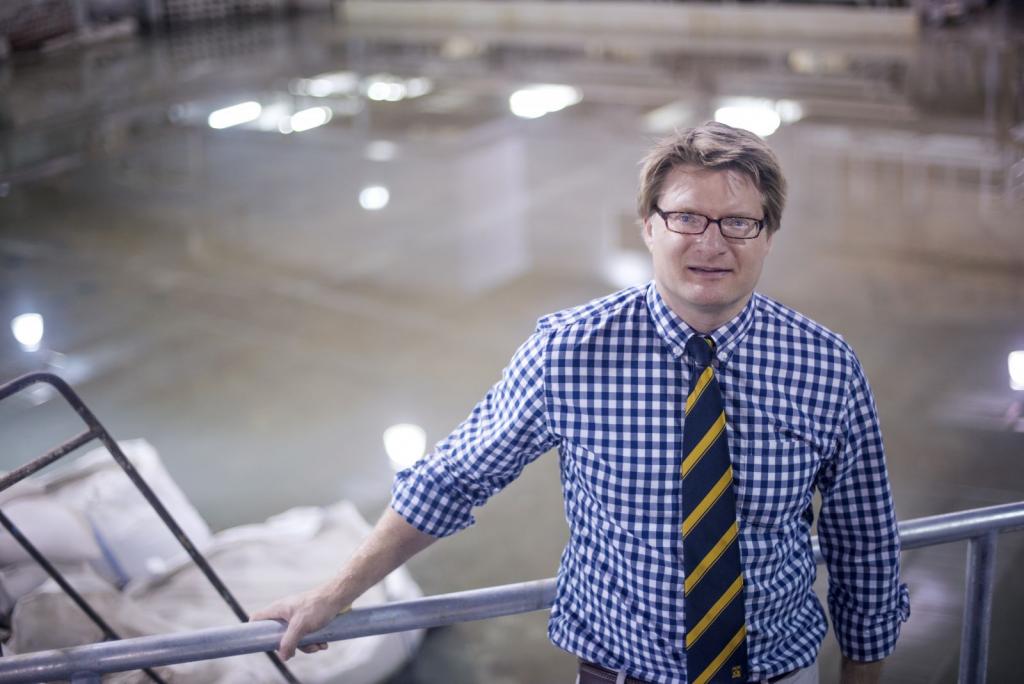 Leon Boegman – Dr. Leon Boegman’s project “Characterizing spatial hydrodynamics in wastewater stabilization ponds to advance Completely Stirred Tank Reactor design models” will benefit greatly from the Research Leaders’ Fund. The project’s aim is to assess the benefits of using a three-dimensional computer model to simulate the biogeochemistry and hydrodynamics of a wastewater stabilization pond. WSPs are inexpensive and efficient ways of treating organic waste in Canada’s rural and northern regions. However, they have not been effectively studied using one- and two-dimensional computer models because of their limitations in accounting for spatial variability and realistic hydrodynamics. Dr. Boegman’s project will create an appropriate computer program to facilitate investigation into WSPs and assist in aligning them with Canada’s Wastewater Effluent Regulations. The project will also provide the first ever valid data on these WSPs in a three-dimensional model. The Fund will allow for Dr. Boegman to team up with faculty from different research groups in the Department of Civil Engineering at Queen’s in order to enhance their analysis of current WSP models. This project will create the initial foundation for future collaborations on the design of wastewater stabilization ponds.
Leon Boegman – Dr. Leon Boegman’s project “Characterizing spatial hydrodynamics in wastewater stabilization ponds to advance Completely Stirred Tank Reactor design models” will benefit greatly from the Research Leaders’ Fund. The project’s aim is to assess the benefits of using a three-dimensional computer model to simulate the biogeochemistry and hydrodynamics of a wastewater stabilization pond. WSPs are inexpensive and efficient ways of treating organic waste in Canada’s rural and northern regions. However, they have not been effectively studied using one- and two-dimensional computer models because of their limitations in accounting for spatial variability and realistic hydrodynamics. Dr. Boegman’s project will create an appropriate computer program to facilitate investigation into WSPs and assist in aligning them with Canada’s Wastewater Effluent Regulations. The project will also provide the first ever valid data on these WSPs in a three-dimensional model. The Fund will allow for Dr. Boegman to team up with faculty from different research groups in the Department of Civil Engineering at Queen’s in order to enhance their analysis of current WSP models. This project will create the initial foundation for future collaborations on the design of wastewater stabilization ponds.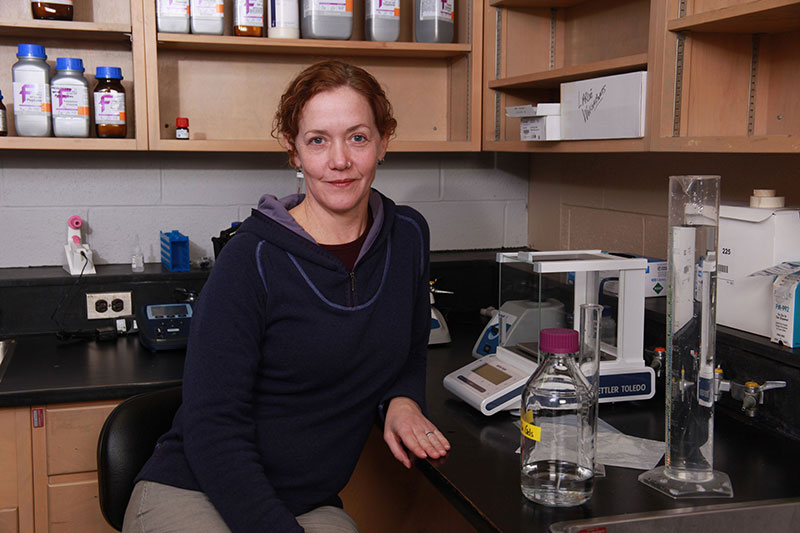 Frances Bonier – When over 90% of the local population of red-wing blackbirds at the Queen’s University Biological Station became infected with three types of parasites, Dr. Frances Bonier saw the opportunity for discovery. Her research project, entitled “Ecophysiology and immunology research methods for advancing understanding of organismal responses to challenges,” seeks to develop several analytical tools to study these parasitic infections. Creating more advanced tools for her lab to study the number of parasites in each specimen, their response to infection, and the cost of infection will allow Bonier’s team to understand exactly which factors contributed to this phenomenon. Parasites interact with each other inside a host body over time, and the tools developed by her team will allow for a detailed and sensitive detection of these interactions. Dr. Bonier will then be able to see whether environmental changes are a major factor in the infections, and she can begin to develop future studies to map the impact of these parasites in other environments. The Research Leaders’ Fund will also provide for the expansion of Dr. Bonier’s lab as a centre for student learning and innovation through the development of these research tools.
Frances Bonier – When over 90% of the local population of red-wing blackbirds at the Queen’s University Biological Station became infected with three types of parasites, Dr. Frances Bonier saw the opportunity for discovery. Her research project, entitled “Ecophysiology and immunology research methods for advancing understanding of organismal responses to challenges,” seeks to develop several analytical tools to study these parasitic infections. Creating more advanced tools for her lab to study the number of parasites in each specimen, their response to infection, and the cost of infection will allow Bonier’s team to understand exactly which factors contributed to this phenomenon. Parasites interact with each other inside a host body over time, and the tools developed by her team will allow for a detailed and sensitive detection of these interactions. Dr. Bonier will then be able to see whether environmental changes are a major factor in the infections, and she can begin to develop future studies to map the impact of these parasites in other environments. The Research Leaders’ Fund will also provide for the expansion of Dr. Bonier’s lab as a centre for student learning and innovation through the development of these research tools.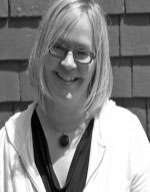 Heather Castleden – Dr. Heather Castleden’s pilot study on the impacts associated with dismantling several CIHR initiatives will provide readers with a window into CIHR’s current relationship with Indigenous peoples. Her project, called “CIHR's new open suite of programs and college of reviewers: so, how's that working for pathways to Indigenous health equity in research and outcomes in Canada?” is a study of the 2014 reforms that saw the undoing of 15 years of progress towards respectfully engaging with Indigenous peoples and their values in health research. Her pilot study is designed to interview key players in the reforms, including affiliates of the Institute of Aboriginal Peoples’ Health and other Institute Advisory Board Chairs. Her project will also be analyzing funding success from before and after the structural reforms. Dr. Castleden’s position as a Canada Research Chair in Reconciling Relations for Health, Environments, and Communities and past Vice-Chair on the CIHR-IAPH Advisory Board provide her with insightful background knowledge on these reforms. Her study can provide a valuable history of the health resources available to Indigenous peoples, who have been systemically disadvantaged by the healthcare system, and demonstrate the level of engagement Indigenous peoples have in creating health policies that affect all Canadians.
Heather Castleden – Dr. Heather Castleden’s pilot study on the impacts associated with dismantling several CIHR initiatives will provide readers with a window into CIHR’s current relationship with Indigenous peoples. Her project, called “CIHR's new open suite of programs and college of reviewers: so, how's that working for pathways to Indigenous health equity in research and outcomes in Canada?” is a study of the 2014 reforms that saw the undoing of 15 years of progress towards respectfully engaging with Indigenous peoples and their values in health research. Her pilot study is designed to interview key players in the reforms, including affiliates of the Institute of Aboriginal Peoples’ Health and other Institute Advisory Board Chairs. Her project will also be analyzing funding success from before and after the structural reforms. Dr. Castleden’s position as a Canada Research Chair in Reconciling Relations for Health, Environments, and Communities and past Vice-Chair on the CIHR-IAPH Advisory Board provide her with insightful background knowledge on these reforms. Her study can provide a valuable history of the health resources available to Indigenous peoples, who have been systemically disadvantaged by the healthcare system, and demonstrate the level of engagement Indigenous peoples have in creating health policies that affect all Canadians.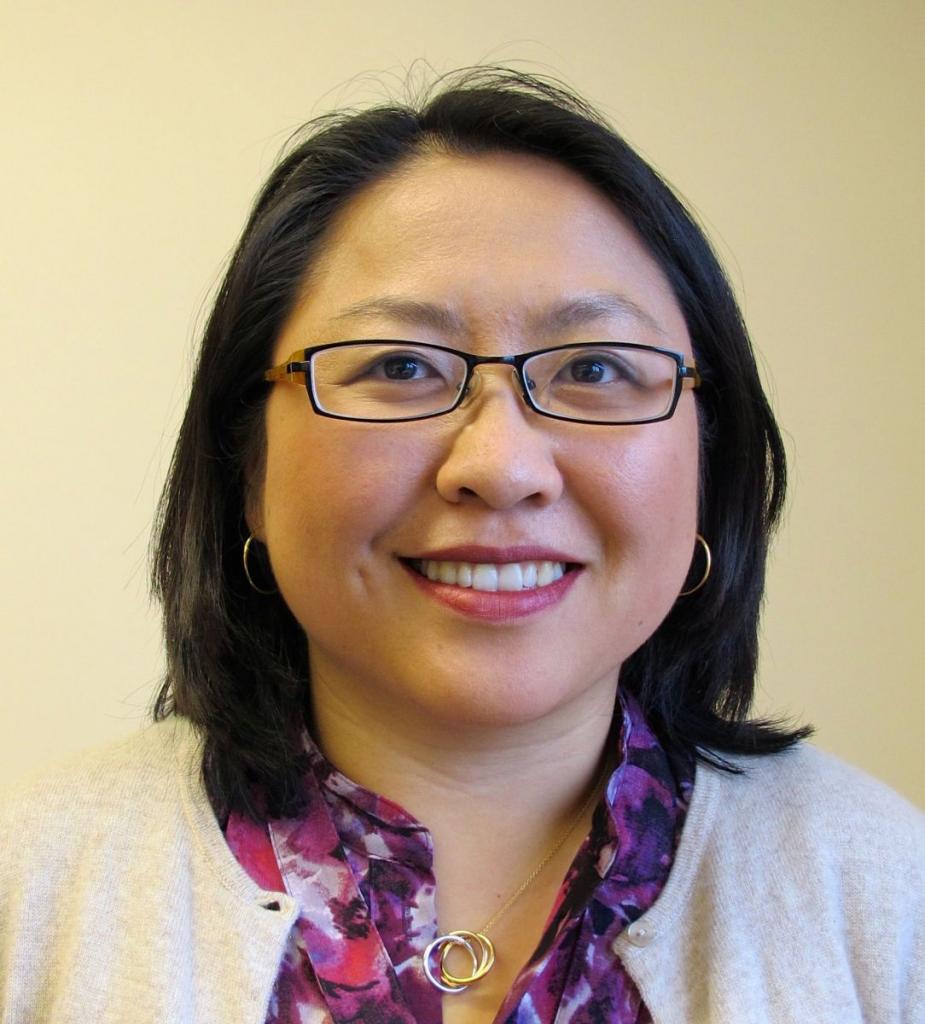 Qingling Duan – Dr. Qingling Duan is committed to helping the hundreds of millions of people around the world who are living with asthma. Her project, entitled “Moving towards precision medicine using genomic signatures in severe asthma,” is searching for a genetic link between asthma patients and their rejection of a new class of drugs meant to reduce inflammation by targeting specific immune cells called eosinophils. Her work aims to understand why certain people respond to these drugs while others do not, in an effort to identify new biomarkers of drug response. Dr. Duan, with the help of the Research Leaders’ Fund, will conduct a study that integrates genomics with gene expression data from patients with variable therapeutic responses. She believes that those with eosinophil-driven asthma will demonstrate a unique gene expression signature compared to those with other forms of asthma. Her research will greatly impact patients by creating a more precise approach to asthma treatment. If successful, patients with asthma could have access to more effective treatment and see a reduction in severe asthma symptoms. Her research will also benefit the Canadian healthcare system by reducing patient visits to hospitals and the mounting costs incurred by constantly trying different therapies.
Qingling Duan – Dr. Qingling Duan is committed to helping the hundreds of millions of people around the world who are living with asthma. Her project, entitled “Moving towards precision medicine using genomic signatures in severe asthma,” is searching for a genetic link between asthma patients and their rejection of a new class of drugs meant to reduce inflammation by targeting specific immune cells called eosinophils. Her work aims to understand why certain people respond to these drugs while others do not, in an effort to identify new biomarkers of drug response. Dr. Duan, with the help of the Research Leaders’ Fund, will conduct a study that integrates genomics with gene expression data from patients with variable therapeutic responses. She believes that those with eosinophil-driven asthma will demonstrate a unique gene expression signature compared to those with other forms of asthma. Her research will greatly impact patients by creating a more precise approach to asthma treatment. If successful, patients with asthma could have access to more effective treatment and see a reduction in severe asthma symptoms. Her research will also benefit the Canadian healthcare system by reducing patient visits to hospitals and the mounting costs incurred by constantly trying different therapies. Simon French – Dr. Simon French in the School of Rehabilitation Therapy is leading a study on the feasibility of implementing a prognostic tool for the management of low back pain into the Ontario primary healthcare setting. The tool, called STarT Back and developed in the United Kingdom, gives family doctors guidance on treatment options for patients with low back pain. His study is called “Improving the primary care management of low back pain: a feasibility study,” and could have major benefits on current primary care back pain management. His team, composed of researchers from multiple disciplines, will begin by recruiting family doctors and patients. Some patients will be referred to a specially trained physical therapist who will provide the targeted treatments directed by the STarT Back tool. The physical therapist will be trained in the STarT Back program at Keele University in England. Dr. French’s research will provide the foundation for future researchers and doctors to improve the quality of care provided to patients suffering from back pain. The use of this tool may also decrease costs to the Ontario healthcare system by applying a more targeted approach to patients with low back pain.
Simon French – Dr. Simon French in the School of Rehabilitation Therapy is leading a study on the feasibility of implementing a prognostic tool for the management of low back pain into the Ontario primary healthcare setting. The tool, called STarT Back and developed in the United Kingdom, gives family doctors guidance on treatment options for patients with low back pain. His study is called “Improving the primary care management of low back pain: a feasibility study,” and could have major benefits on current primary care back pain management. His team, composed of researchers from multiple disciplines, will begin by recruiting family doctors and patients. Some patients will be referred to a specially trained physical therapist who will provide the targeted treatments directed by the STarT Back tool. The physical therapist will be trained in the STarT Back program at Keele University in England. Dr. French’s research will provide the foundation for future researchers and doctors to improve the quality of care provided to patients suffering from back pain. The use of this tool may also decrease costs to the Ontario healthcare system by applying a more targeted approach to patients with low back pain.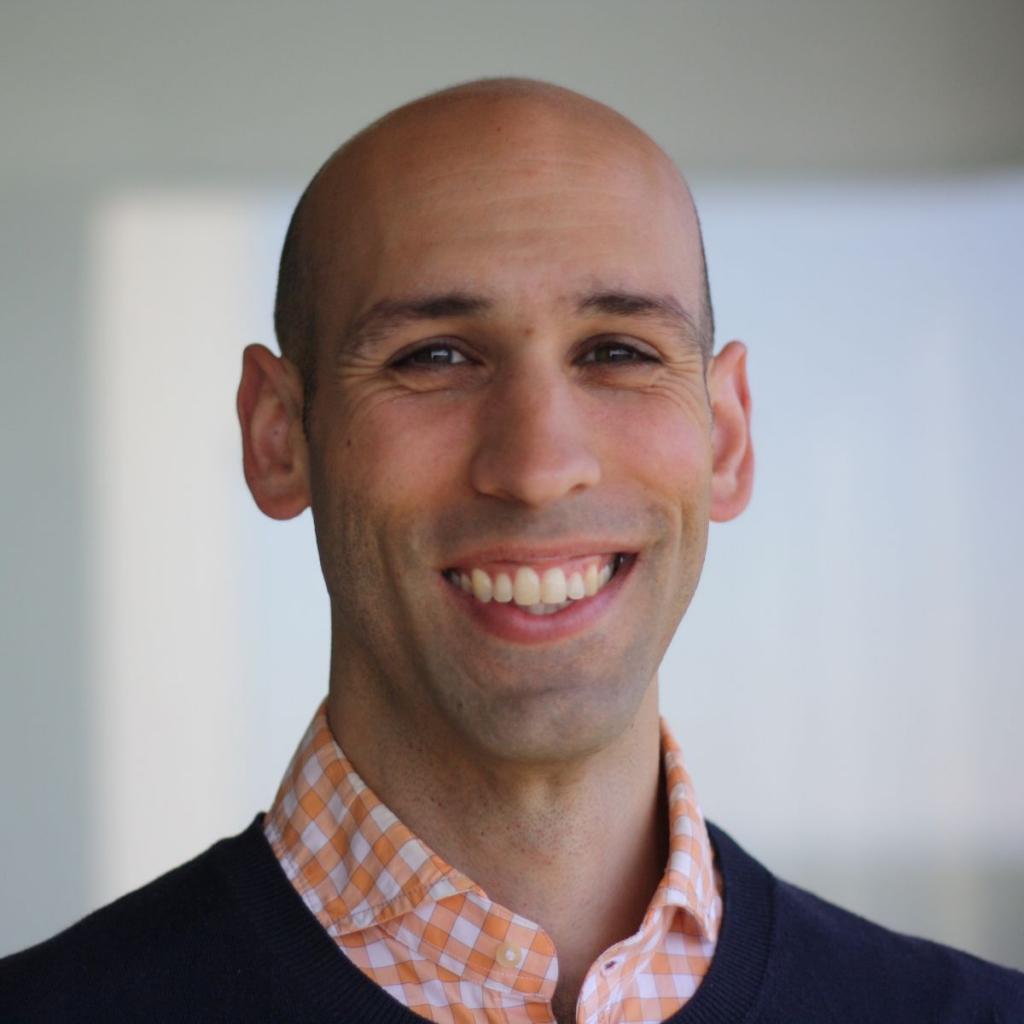 Mark Ormiston – Dr. Mark Ormiston’s project “Generation of blood outgrowth endothelial cells for the study of immune dysfunction in pulmonary arterial hypertension” will establish a new hub for research on pulmonary arterial hypertension (PAH) at Queen’s. PAH is a deadly disease that blocks the lungs’ blood vessels through the excessive growth of pulmonary endothelial and vascular smooth muscle cells. His project will create a bank for blood outgrowth endothelial cells (BOEC) that act as a surrogate for human pulmonary arterial endothelial cells – a type of cell that is currently very difficult to isolate from PAH patients. Establishing a BOEC bank at Queen’s will allow Dr. Ormiston to continue his study of pulmonary arterial hypertension, with a specific focus on the interactions of patient BOECs with certain immune cells. His study will also promote ties with international institutions such as the University of Cambridge, supporting the reputation of Queen’s researchers globally. The project will provide valuable skills to graduate and post-graduate personnel trained by Dr. Ormiston on laboratory techniques associated with BOECs and genetic expression. Dr. Ormiston has already acquired the cell lines from the University of Cambridge and received ethical approval to begin creating cell lines at KGH.
Mark Ormiston – Dr. Mark Ormiston’s project “Generation of blood outgrowth endothelial cells for the study of immune dysfunction in pulmonary arterial hypertension” will establish a new hub for research on pulmonary arterial hypertension (PAH) at Queen’s. PAH is a deadly disease that blocks the lungs’ blood vessels through the excessive growth of pulmonary endothelial and vascular smooth muscle cells. His project will create a bank for blood outgrowth endothelial cells (BOEC) that act as a surrogate for human pulmonary arterial endothelial cells – a type of cell that is currently very difficult to isolate from PAH patients. Establishing a BOEC bank at Queen’s will allow Dr. Ormiston to continue his study of pulmonary arterial hypertension, with a specific focus on the interactions of patient BOECs with certain immune cells. His study will also promote ties with international institutions such as the University of Cambridge, supporting the reputation of Queen’s researchers globally. The project will provide valuable skills to graduate and post-graduate personnel trained by Dr. Ormiston on laboratory techniques associated with BOECs and genetic expression. Dr. Ormiston has already acquired the cell lines from the University of Cambridge and received ethical approval to begin creating cell lines at KGH.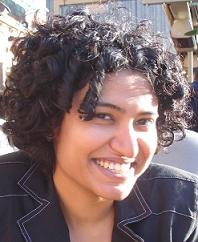 Ishita Pande – In her project “A global history of ‘Hindu Sexology’: science, sexual modernity and the making of the body clock,” Dr. Ishita Pande hopes to provide a comprehensive history of the development of “Hindu Sexology.” Her study looks at the human aspects of science and the development of sexology as a way of homogenizing identities, spreading social norms and claiming sexual rights. The rise of sexology in the 1880s to 1950s had massive ripple effects across India and the world, and turned sex into a phenomenon to be observed scientifically. The implications of sexology are still present today in the government policies and social norms surrounding sex and in the continued reliance on binaries to develop new policies. Dr. Pande’s research, while focusing on Hindu sexology, will also provide a history of debates on homosexuality in India that is missing from current literature. She will visit archives in the UK and in India to study works in four different languages about the history of sexology, allowing her to capture both Western views of sexology and those within India itself. The Research Leaders’ Fund is an amazing opportunity for Dr. Pande to turn her research into a book that will greatly enhance our knowledge of sexology.
Ishita Pande – In her project “A global history of ‘Hindu Sexology’: science, sexual modernity and the making of the body clock,” Dr. Ishita Pande hopes to provide a comprehensive history of the development of “Hindu Sexology.” Her study looks at the human aspects of science and the development of sexology as a way of homogenizing identities, spreading social norms and claiming sexual rights. The rise of sexology in the 1880s to 1950s had massive ripple effects across India and the world, and turned sex into a phenomenon to be observed scientifically. The implications of sexology are still present today in the government policies and social norms surrounding sex and in the continued reliance on binaries to develop new policies. Dr. Pande’s research, while focusing on Hindu sexology, will also provide a history of debates on homosexuality in India that is missing from current literature. She will visit archives in the UK and in India to study works in four different languages about the history of sexology, allowing her to capture both Western views of sexology and those within India itself. The Research Leaders’ Fund is an amazing opportunity for Dr. Pande to turn her research into a book that will greatly enhance our knowledge of sexology.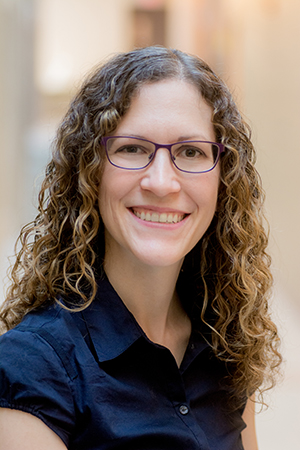 Laura Wells – Dr. Laura Wells is using her Research Leaders’ Fund to create amazing applications in the world of ophthalmology. Her project, “The role of biomaterial surface properties and neutrophil cell behaviour on intraocular lens posterior capsule opacification (secondary cataracts),” is researching how secondary cataracts develop after the application of intraocular lenses to the first cataracts. Secondary cataracts, also called posterior capsule opacification, develop in 10% of patients with intraocular lenses and requires secondary treatment. By creating an in vitro model, Dr. Wells can ascertain if it is neutrophil cells interacting with the lenses that cause secondary cataracts. Her knowledge of biomaterial development will transition well into the invention of ophthalmic devices for those suffering from cataracts. Her development of the in vitro model will improve the quality of ocular care throughout the industry and expand researchers’ knowledge about secondary cataracts. It will also allow her to take a proactive approach to secondary cataracts by studying their development at a cellular level. Dr. Wells will also be able to foster a positive learning environment; her graduate and undergraduate students will be collaborating with ophthalmic surgeons and biomedical researchers.
Laura Wells – Dr. Laura Wells is using her Research Leaders’ Fund to create amazing applications in the world of ophthalmology. Her project, “The role of biomaterial surface properties and neutrophil cell behaviour on intraocular lens posterior capsule opacification (secondary cataracts),” is researching how secondary cataracts develop after the application of intraocular lenses to the first cataracts. Secondary cataracts, also called posterior capsule opacification, develop in 10% of patients with intraocular lenses and requires secondary treatment. By creating an in vitro model, Dr. Wells can ascertain if it is neutrophil cells interacting with the lenses that cause secondary cataracts. Her knowledge of biomaterial development will transition well into the invention of ophthalmic devices for those suffering from cataracts. Her development of the in vitro model will improve the quality of ocular care throughout the industry and expand researchers’ knowledge about secondary cataracts. It will also allow her to take a proactive approach to secondary cataracts by studying their development at a cellular level. Dr. Wells will also be able to foster a positive learning environment; her graduate and undergraduate students will be collaborating with ophthalmic surgeons and biomedical researchers.Recipients: Susan Bartels, Christopher Booth, Pascale Champagne, Marc Epprecht, Christina Godfrey, Anthony Goerzen, James Miller, Michael Rainbow, Dongsheng Tu, and Suning Wang.
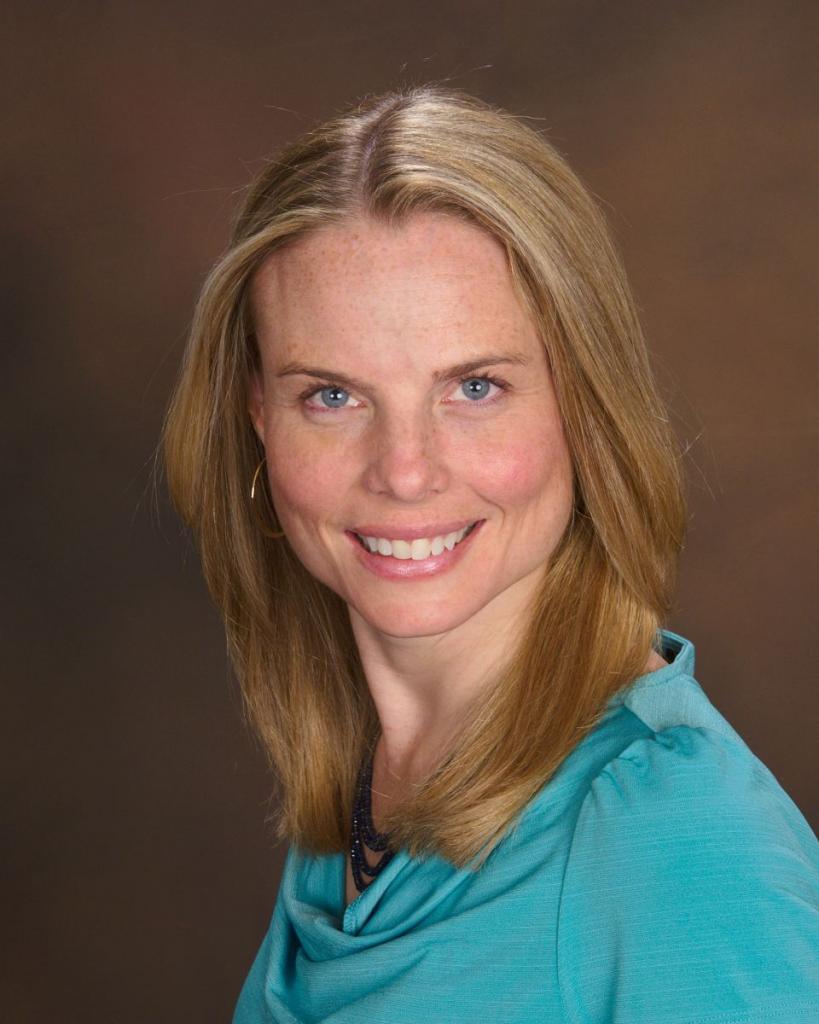 Susan Bartels – To further her work on “peace babies,” Dr. Susan Bartels has proposed a multidisciplinary research project to study children fathered by peacekeepers and born to local women in the host country. Combining professors from Queen’s and the University of Birmingham, this project seeks to determine the number of peace babies around UN bases in the DRC and Haiti, and to analyze the challenges faced by these children and their families. Oftentimes, women raising ‘peace babies’ face judgement and stigma from their communities, and this study will help elucidate exactly how this affects them and the children they are raising. Dr. Bartels has years of experience working in humanitarian settings, and the project’s team will bring together viewpoints and expertise from many disciplines. The results of this study will help inform policies of United Nations and the training of future peacekeepers. The work will also provide an excellent learning opportunity for several graduate students whose projects will be facilitated by this study. The collaborations with the University of Birmingham will strengthen Queen’s knowledge about children born of war and pave the way for future international collaborations in this growing field.
Susan Bartels – To further her work on “peace babies,” Dr. Susan Bartels has proposed a multidisciplinary research project to study children fathered by peacekeepers and born to local women in the host country. Combining professors from Queen’s and the University of Birmingham, this project seeks to determine the number of peace babies around UN bases in the DRC and Haiti, and to analyze the challenges faced by these children and their families. Oftentimes, women raising ‘peace babies’ face judgement and stigma from their communities, and this study will help elucidate exactly how this affects them and the children they are raising. Dr. Bartels has years of experience working in humanitarian settings, and the project’s team will bring together viewpoints and expertise from many disciplines. The results of this study will help inform policies of United Nations and the training of future peacekeepers. The work will also provide an excellent learning opportunity for several graduate students whose projects will be facilitated by this study. The collaborations with the University of Birmingham will strengthen Queen’s knowledge about children born of war and pave the way for future international collaborations in this growing field.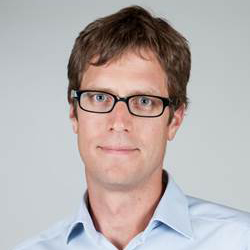 Christopher Booth – Dr. Christopher Booth is creating strong ties with a leading cancer hospital in Kerala, India. His project, entitled “Cancer health services research collaboration at the Regional Cancer Centre (RCC), Thiruvananthapuram, Kerala, India,” will see the start of two major studies with Dr. Aleyamma Mathew of the RCC as the co-Principal Investigator. Low and middle-income countries have seen few studies analyzing the outcomes of treatment for cervical cancer and the impact of lower socioeconomic status on cancer survival rates. Dr. Booth’s award from the International Fund will allow him and Dr. Mathew to begin studies on both of these issues, which will improve the treatment and preventative measures put in place for patients. This will benefit the Indian healthcare system that is overburdened with cases of cancer and help researchers understand the predetermining factors that lead to these cases. These studies will assist in creating a long-term collaboration between Queen’s and the RCC.
Christopher Booth – Dr. Christopher Booth is creating strong ties with a leading cancer hospital in Kerala, India. His project, entitled “Cancer health services research collaboration at the Regional Cancer Centre (RCC), Thiruvananthapuram, Kerala, India,” will see the start of two major studies with Dr. Aleyamma Mathew of the RCC as the co-Principal Investigator. Low and middle-income countries have seen few studies analyzing the outcomes of treatment for cervical cancer and the impact of lower socioeconomic status on cancer survival rates. Dr. Booth’s award from the International Fund will allow him and Dr. Mathew to begin studies on both of these issues, which will improve the treatment and preventative measures put in place for patients. This will benefit the Indian healthcare system that is overburdened with cases of cancer and help researchers understand the predetermining factors that lead to these cases. These studies will assist in creating a long-term collaboration between Queen’s and the RCC.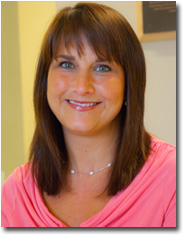 Pascale Champagne – The treatment of wastewater is global concern, and the city of Quito, Ecuador is no exception. In her project “An integrated algal system as a potential eco-engineered wastewater treatment process in Ecuador,” Dr. Pascale Champagne is hoping to ascertain the feasibility of using an integrated algal system to treat wastewater in Quito. In collaboration with Dr. Ochoa-Herrera and her undergraduate student Maria Belen Benitez and graduate student Sofia Barrera at Universidad San Francisco de Quito (USFQ), Ecuador, Dr. Champagne will assess how much nitrogen and phosphorus can be removed from the water samples using an algae culture. This project could have huge ramifications for the city of Quito, which is currently lacking a wastewater treatment plant. If successful, Dr. Champagne’s system could be used not only in Quito, where wastewater is a major environmental concern, but in many other Latin American cities as well. The collaboration between Dr. Champagne and Dr. Ochoa-Herrera will also involve the exchange of undergraduate and graduate students, providing an excellent learning opportunity for students of both countries.
Pascale Champagne – The treatment of wastewater is global concern, and the city of Quito, Ecuador is no exception. In her project “An integrated algal system as a potential eco-engineered wastewater treatment process in Ecuador,” Dr. Pascale Champagne is hoping to ascertain the feasibility of using an integrated algal system to treat wastewater in Quito. In collaboration with Dr. Ochoa-Herrera and her undergraduate student Maria Belen Benitez and graduate student Sofia Barrera at Universidad San Francisco de Quito (USFQ), Ecuador, Dr. Champagne will assess how much nitrogen and phosphorus can be removed from the water samples using an algae culture. This project could have huge ramifications for the city of Quito, which is currently lacking a wastewater treatment plant. If successful, Dr. Champagne’s system could be used not only in Quito, where wastewater is a major environmental concern, but in many other Latin American cities as well. The collaboration between Dr. Champagne and Dr. Ochoa-Herrera will also involve the exchange of undergraduate and graduate students, providing an excellent learning opportunity for students of both countries.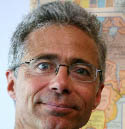 Marc Epprecht – With his award from the International Fund, Dr. Marc Epprecht will develop Queen’s as a leader in African studies through his proposal for the creation of a “Matariki Network for African Studies.” By cooperating with colleagues at Dartmouth College, specifically Dr. Ayo Coly, Dr. Epprecht will create the necessary framework within the Matariki Network of Universities MNU to promote collaborations with each other and with their African partners. This grant will fund two upcoming colloquia focused on promoting sexual minority rights in Africa through economic development and capacity building. One colloquium will be held at Queen’s on Africa Day 2016 and will involve presentations from faculty in multiple disciplines. The other will occur at Dartmouth College in October 2017 and will concern itself with understanding existing African models for engagement in health and wellness. These colloquia will also assist in preparing for the 2018 Canadian Association of African Studies conference being hosted by Queen’s. Dr. Epprecht anticipates several publications regarding conceptions about African sexual minority rights to come from these conferences, developing Queen’s reputation as a leader in the study of LGBTQI minorities across Africa.
Marc Epprecht – With his award from the International Fund, Dr. Marc Epprecht will develop Queen’s as a leader in African studies through his proposal for the creation of a “Matariki Network for African Studies.” By cooperating with colleagues at Dartmouth College, specifically Dr. Ayo Coly, Dr. Epprecht will create the necessary framework within the Matariki Network of Universities MNU to promote collaborations with each other and with their African partners. This grant will fund two upcoming colloquia focused on promoting sexual minority rights in Africa through economic development and capacity building. One colloquium will be held at Queen’s on Africa Day 2016 and will involve presentations from faculty in multiple disciplines. The other will occur at Dartmouth College in October 2017 and will concern itself with understanding existing African models for engagement in health and wellness. These colloquia will also assist in preparing for the 2018 Canadian Association of African Studies conference being hosted by Queen’s. Dr. Epprecht anticipates several publications regarding conceptions about African sexual minority rights to come from these conferences, developing Queen’s reputation as a leader in the study of LGBTQI minorities across Africa.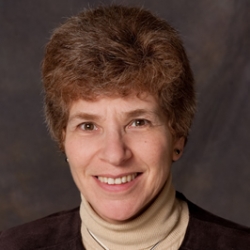 Christina Godfrey – As the scientific director of the Queen’s Joanna Briggs Collaboration QJBC), Dr. Christina Godfrey is hoping to enhance evidence synthesis at seven healthcare centers in six African countries with her project “Building skills in evidence synthesis to advance healthcare.” Her mission is to provide training and support for African healthcare centres implementing evidence synthesis. Using the International Fund, Dr. Godfrey will be able to conduct a needs assessment for seven centres and develop a platform that will enable interactions between QJBC and these seven centres. The fund will also support a six-week training program at Queen’s for one or two centre participants who will receive extended training about evidence synthesis and conduct their own evidence synthesis project. The findings from Dr. Godfrey’s study on the effectiveness of the methods used at the seven centres will also set the stage for future publications and conference presentations. This collaboration with the seven African centres will expand QJBC’s international collaborations to a third continent and assist the sharing of knowledge between the centres themselves. It will also continue the positive pattern of mentorship and support within all Joanna Briggs Institutes.
Christina Godfrey – As the scientific director of the Queen’s Joanna Briggs Collaboration QJBC), Dr. Christina Godfrey is hoping to enhance evidence synthesis at seven healthcare centers in six African countries with her project “Building skills in evidence synthesis to advance healthcare.” Her mission is to provide training and support for African healthcare centres implementing evidence synthesis. Using the International Fund, Dr. Godfrey will be able to conduct a needs assessment for seven centres and develop a platform that will enable interactions between QJBC and these seven centres. The fund will also support a six-week training program at Queen’s for one or two centre participants who will receive extended training about evidence synthesis and conduct their own evidence synthesis project. The findings from Dr. Godfrey’s study on the effectiveness of the methods used at the seven centres will also set the stage for future publications and conference presentations. This collaboration with the seven African centres will expand QJBC’s international collaborations to a third continent and assist the sharing of knowledge between the centres themselves. It will also continue the positive pattern of mentorship and support within all Joanna Briggs Institutes.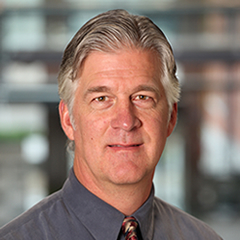 Anthony Goerzen – In an increasingly complex system of globalized supply chains, Dr. Anthony Goerzen is focused on understanding the environmental and social impacts of these large enterprises. His project, entitled “Global supply chain management practice − environmental and social sustainability,” seeks to gather information on practices used by multinational corporations (MNC) such as auditing, sourcing, production, and risk. This information will be used to build a database on Canadian MNC policies which will be accessible to faculty and graduate students. Dr. Goerzen’s model will be replicated at the University of Technology Sydney in Australia, Bocconi University in Italy, University of St Gallen in Switzerland, and University of Nuremburg in Germany, leading to a global database on the policies and practices of MNCs. Dr. Goerzen’s project will provide effective risk mitigation strategies for MNCs that can benefit stakeholders and companies alike when creating policies on supply chain management. Creating these strategies is essential in preventing tragedies like those of the Rana Plaza fire by creating greater transparency surrounding supply chains within a company. The project will also enable Queen’s to create research partnerships with institutions that previously had only student exchange-based relationships.
Anthony Goerzen – In an increasingly complex system of globalized supply chains, Dr. Anthony Goerzen is focused on understanding the environmental and social impacts of these large enterprises. His project, entitled “Global supply chain management practice − environmental and social sustainability,” seeks to gather information on practices used by multinational corporations (MNC) such as auditing, sourcing, production, and risk. This information will be used to build a database on Canadian MNC policies which will be accessible to faculty and graduate students. Dr. Goerzen’s model will be replicated at the University of Technology Sydney in Australia, Bocconi University in Italy, University of St Gallen in Switzerland, and University of Nuremburg in Germany, leading to a global database on the policies and practices of MNCs. Dr. Goerzen’s project will provide effective risk mitigation strategies for MNCs that can benefit stakeholders and companies alike when creating policies on supply chain management. Creating these strategies is essential in preventing tragedies like those of the Rana Plaza fire by creating greater transparency surrounding supply chains within a company. The project will also enable Queen’s to create research partnerships with institutions that previously had only student exchange-based relationships. James Miller – Dr. James Miller, through his project “Decentering critical theory,” is seeking to reframe the interactions between Chinese and Western cultures. His research focus is the ways in which both cultures perceive the human body in relation to society and nature, which is a topic that will become more important as China rises as a major global power in many fields. Dr. Miller’s project involves several colleagues at five leading institutions across four countries. They have formulated four research questions to be answered individually, one each year for four years, that are aimed at decentering critical theory from its past Western focus. Their papers will be presented at the annual summer institute at Beijing National University. The collaboration will result in several journal publications each year and four edited volumes of their work. Dr. Miller’s project will also allow for greater ties to be built between Queen’s and Beijing National University, and will facilitate bicultural research for students in many disciplines at Queen’s. His project will create new frameworks for interaction and information-sharing across Chinese and Western cultures, and has the potential to be replicated in various other cross-cultural relationships.
James Miller – Dr. James Miller, through his project “Decentering critical theory,” is seeking to reframe the interactions between Chinese and Western cultures. His research focus is the ways in which both cultures perceive the human body in relation to society and nature, which is a topic that will become more important as China rises as a major global power in many fields. Dr. Miller’s project involves several colleagues at five leading institutions across four countries. They have formulated four research questions to be answered individually, one each year for four years, that are aimed at decentering critical theory from its past Western focus. Their papers will be presented at the annual summer institute at Beijing National University. The collaboration will result in several journal publications each year and four edited volumes of their work. Dr. Miller’s project will also allow for greater ties to be built between Queen’s and Beijing National University, and will facilitate bicultural research for students in many disciplines at Queen’s. His project will create new frameworks for interaction and information-sharing across Chinese and Western cultures, and has the potential to be replicated in various other cross-cultural relationships. Michael Rainbow – Dr. Michael Rainbow is gaining greater insight into the function of the human foot in his project “An international collaboration to understand the neuromechanics of the human foot.” Together with researchers from the University of Queensland, INRIA in France, and Brown University, Dr. Rainbow is using several technologies to analyze arch biomechanics and the structures that modulate stiffness in the medial longitudinal arch of the foot. By charting the movements of the individual structures of the foot in the context of full body motion, the team will be able to better understand the neuromuscular and mechanical function of the foot and its contributions to the human musculoskeletal system. Dr. Rainbow’s research on the foot can have major impacts in the fields of prosthetics and chronic foot injuries. Prosthetics engineers may be able to use this new data to create more effective foot prosthetics that can mimic the function of the intricate structures inside the foot. Foot injury treatment can also benefit from this research by increasing our knowledge of the underlying mechanisms. Dr. Rainbow is also strengthening the relationships between the Human Mobility Research Centre at Queen’s and his collaborators in the United States, Australia, and France.
Michael Rainbow – Dr. Michael Rainbow is gaining greater insight into the function of the human foot in his project “An international collaboration to understand the neuromechanics of the human foot.” Together with researchers from the University of Queensland, INRIA in France, and Brown University, Dr. Rainbow is using several technologies to analyze arch biomechanics and the structures that modulate stiffness in the medial longitudinal arch of the foot. By charting the movements of the individual structures of the foot in the context of full body motion, the team will be able to better understand the neuromuscular and mechanical function of the foot and its contributions to the human musculoskeletal system. Dr. Rainbow’s research on the foot can have major impacts in the fields of prosthetics and chronic foot injuries. Prosthetics engineers may be able to use this new data to create more effective foot prosthetics that can mimic the function of the intricate structures inside the foot. Foot injury treatment can also benefit from this research by increasing our knowledge of the underlying mechanisms. Dr. Rainbow is also strengthening the relationships between the Human Mobility Research Centre at Queen’s and his collaborators in the United States, Australia, and France. Dongsheng Tu – In his project “Collaborative research on statistical models for the joint analysis of quality of life and survival data,” Dr. Dongsheng Tu will develop new statistical methods to analyze quality of life (Qol) data collected directly from cancer patients. He has partnered with Professor Guoyou Qin of Fudan University’s School of Public Health and colleagues from other Chinese universities to combine his own knowledge of cancer treatment and survival analysis with expertise of his partners in longitudinal data analysis. Thanks to the International Fund, Dr. Qin and other researchers from China will be able to visit Queen’s during the summers of 2016 and 2017 to analyze the data gathered by the research team at Canadian Cancer Trials Group and explore new statistical models. The partnership between Dr. Tu and his Chinese colleagues on this project will enable future collaborations between researchers and students at Queen’s and Chinese Universities. This project will also generate new statistical methods for the analysis of quality of life data which will enable more efficient and accurate assessment of cancer prevention and treatment strategies in clinical trials and from the perspectives of cancer patients.
Dongsheng Tu – In his project “Collaborative research on statistical models for the joint analysis of quality of life and survival data,” Dr. Dongsheng Tu will develop new statistical methods to analyze quality of life (Qol) data collected directly from cancer patients. He has partnered with Professor Guoyou Qin of Fudan University’s School of Public Health and colleagues from other Chinese universities to combine his own knowledge of cancer treatment and survival analysis with expertise of his partners in longitudinal data analysis. Thanks to the International Fund, Dr. Qin and other researchers from China will be able to visit Queen’s during the summers of 2016 and 2017 to analyze the data gathered by the research team at Canadian Cancer Trials Group and explore new statistical models. The partnership between Dr. Tu and his Chinese colleagues on this project will enable future collaborations between researchers and students at Queen’s and Chinese Universities. This project will also generate new statistical methods for the analysis of quality of life data which will enable more efficient and accurate assessment of cancer prevention and treatment strategies in clinical trials and from the perspectives of cancer patients. Suning Wang – In a unique collaboration with Japanese and German institutions, Dr. Suning Wang and Dr. Cathleen Crudden are expanding Queen’s international reputation in the field of catalysis and materials science. The project, entitled “Collaborative research on catalysis and materials with researchers at Nagoya University and Kyoto University,” brings together researchers and students from Kyoto University, Nagoya University, Freie Universitat Berlin, and University of Munster. Projects undertaken by this group include Dr. Wang’s work on creating boron-based material for organic light-emitting diodes and Dr. Crudden’s work on creating cost-effective and environmentally friendly metal-free catalysts. The research network also facilitates exchanges to each other’s laboratories for graduate students, allowing students to gain valuable international experience. There are two annual meetings in Canada, Germany, or Japan that facilitate presentations of each lab’s work and continue to foster a collaborative environment for the researchers. Queen's already hosted the first of these symposia on June 29, which featured 19 fascinating oral presentations from seven research teams. Dr. Wang’s grant from the International Fund will assist the teams in their travels and collaborations with network members. As the only Canadian school involved in this network of leading institutions, Dr. Wang and Dr. Crudden have placed Queen’s at the forefront of catalysis and materials science research.
Suning Wang – In a unique collaboration with Japanese and German institutions, Dr. Suning Wang and Dr. Cathleen Crudden are expanding Queen’s international reputation in the field of catalysis and materials science. The project, entitled “Collaborative research on catalysis and materials with researchers at Nagoya University and Kyoto University,” brings together researchers and students from Kyoto University, Nagoya University, Freie Universitat Berlin, and University of Munster. Projects undertaken by this group include Dr. Wang’s work on creating boron-based material for organic light-emitting diodes and Dr. Crudden’s work on creating cost-effective and environmentally friendly metal-free catalysts. The research network also facilitates exchanges to each other’s laboratories for graduate students, allowing students to gain valuable international experience. There are two annual meetings in Canada, Germany, or Japan that facilitate presentations of each lab’s work and continue to foster a collaborative environment for the researchers. Queen's already hosted the first of these symposia on June 29, which featured 19 fascinating oral presentations from seven research teams. Dr. Wang’s grant from the International Fund will assist the teams in their travels and collaborations with network members. As the only Canadian school involved in this network of leading institutions, Dr. Wang and Dr. Crudden have placed Queen’s at the forefront of catalysis and materials science research.Recipients: Dylan Robinson, Jane Tolmie, and Craig Walker.
 Dylan Robinson – The Canada Research Chair in Indigenous Arts, Dr. Dylan Robinson, is bringing renowned Cree/Métis artist Cheryl L’Hirondelle to Queen’s for an artistic residency from September-November 2016. The project, called “Not too few to forget: developing a public art memorial for Kingston’s Prison for Women,” will involve L’Hirondelle in several artistic pursuits during her stay. She will be engaged with the Prison for Women project in fostering conversations with different marginalized groups affected by Kingston’s women’s prison, including a Grandmother’s Council of Indigenous women connected to the prison. These dialogues will work toward the collaborative creation of new artistic work with members of the community connected to Kingston’s Prison for Women. L’Hirondelle will also engage with graduate students and Kingston community members to bring these marginalized histories of incarcerated Indigenous women, men and youth into focus for those without knowledge of this history. L’Hirondelle will visit gender studies and film and media classes and participate in talks to share her experience working with Indigenous women, men and youth in the creation of Freedom Songs, and she will display her media work in the Art and Media Lab at the Isabel Bader Centre. Her time as a visiting artist will greatly enrich the projects of Dr. Robinson as well as the Kingston community at large.
Dylan Robinson – The Canada Research Chair in Indigenous Arts, Dr. Dylan Robinson, is bringing renowned Cree/Métis artist Cheryl L’Hirondelle to Queen’s for an artistic residency from September-November 2016. The project, called “Not too few to forget: developing a public art memorial for Kingston’s Prison for Women,” will involve L’Hirondelle in several artistic pursuits during her stay. She will be engaged with the Prison for Women project in fostering conversations with different marginalized groups affected by Kingston’s women’s prison, including a Grandmother’s Council of Indigenous women connected to the prison. These dialogues will work toward the collaborative creation of new artistic work with members of the community connected to Kingston’s Prison for Women. L’Hirondelle will also engage with graduate students and Kingston community members to bring these marginalized histories of incarcerated Indigenous women, men and youth into focus for those without knowledge of this history. L’Hirondelle will visit gender studies and film and media classes and participate in talks to share her experience working with Indigenous women, men and youth in the creation of Freedom Songs, and she will display her media work in the Art and Media Lab at the Isabel Bader Centre. Her time as a visiting artist will greatly enrich the projects of Dr. Robinson as well as the Kingston community at large.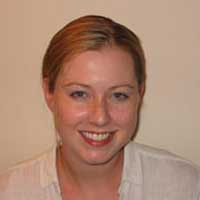 Jane Tolmie – Dr. Jane Tolmie is bringing Queen’s alumna and artist Ciara Phillips to Kingston for a five-week artistic residency. Phillips’ residency aligns well with her exhibition at the Agnes Etherington Arts Centre (AEAC) and the celebration of Queen’s 175th anniversary. Her presence at Queen’s for these events will create a personal connection between herself, her artwork, and her alma mater. Her residency will include her workspace at the AEAC and dedicated open office hours for students, which will show her to be a successful artistic role model for current students. She will host “making together” sessions with community groups to engage the Kingston population with her artwork. Phillips will also be involved at Modern Fuel Artist Run Centre as a discussion group leader and mentor for local artists. She will visit several classes in the Visual Art Program and lead tours of her AEAC exhibition for students in cultural studies, gender studies, political studies, and the BFA program. As a Queen’s graduate and artist concerned with social justice and creative expression, Phillips’ time as a resident artist will positively impact both Queen’s students and Kingston residents with her art exhibition and active community engagement.
Jane Tolmie – Dr. Jane Tolmie is bringing Queen’s alumna and artist Ciara Phillips to Kingston for a five-week artistic residency. Phillips’ residency aligns well with her exhibition at the Agnes Etherington Arts Centre (AEAC) and the celebration of Queen’s 175th anniversary. Her presence at Queen’s for these events will create a personal connection between herself, her artwork, and her alma mater. Her residency will include her workspace at the AEAC and dedicated open office hours for students, which will show her to be a successful artistic role model for current students. She will host “making together” sessions with community groups to engage the Kingston population with her artwork. Phillips will also be involved at Modern Fuel Artist Run Centre as a discussion group leader and mentor for local artists. She will visit several classes in the Visual Art Program and lead tours of her AEAC exhibition for students in cultural studies, gender studies, political studies, and the BFA program. As a Queen’s graduate and artist concerned with social justice and creative expression, Phillips’ time as a resident artist will positively impact both Queen’s students and Kingston residents with her art exhibition and active community engagement. Craig Walker – Prominent Toronto playwright and director Kat Sandler will be brought to Queen’s in the fall of 2016 thanks to Dr. Craig Walker. Kat Sandler, who has won numerous awards for her hilarious but morally complex plays, will work with Queen’s Drama students to develop an original work. She will meet with students to assess their talents and begin brainstorming ideas for the play. She will then come to Queen’s in the fall of 2016 as writer and director to do a reading and casting of the play. Starting in January 2017, rehearsals will begin, leading to several performances of the finished piece in the two weeks before Reading Week. Sandler will also conduct several class visits and Q&A Sessions after the performances to connect her with Queen’s students and community members. Sandler’s presence at Queen’s will foster a unique experience for Drama students by having a play written collaboratively with a professional playwright that is tailored to their skill set. Her residency will also show her to be an excellent role model for future Queen’s graduates who are looking to work in the theatre industry.
Craig Walker – Prominent Toronto playwright and director Kat Sandler will be brought to Queen’s in the fall of 2016 thanks to Dr. Craig Walker. Kat Sandler, who has won numerous awards for her hilarious but morally complex plays, will work with Queen’s Drama students to develop an original work. She will meet with students to assess their talents and begin brainstorming ideas for the play. She will then come to Queen’s in the fall of 2016 as writer and director to do a reading and casting of the play. Starting in January 2017, rehearsals will begin, leading to several performances of the finished piece in the two weeks before Reading Week. Sandler will also conduct several class visits and Q&A Sessions after the performances to connect her with Queen’s students and community members. Sandler’s presence at Queen’s will foster a unique experience for Drama students by having a play written collaboratively with a professional playwright that is tailored to their skill set. Her residency will also show her to be an excellent role model for future Queen’s graduates who are looking to work in the theatre industry.Recipients: Reza Nosrati, Jaqueline Raymondi Silva, and Gregory Whitfield.
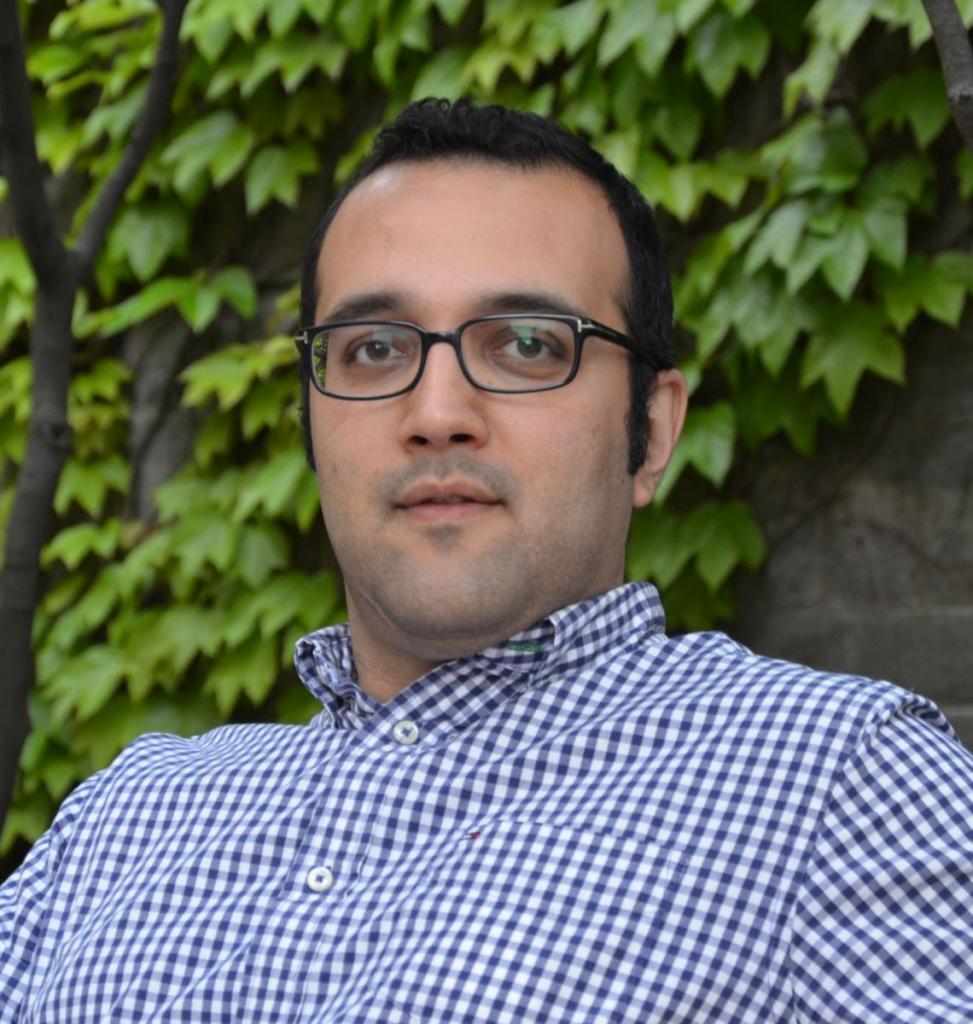 Reza Nosrati – Dr. Reza Nosrati is ready to apply his vast academic background in fluid mechanics to Prof. Carlos Escobedo’s (Department of Chemical Engineering) research on the applications of micro-technology into cell biology and sensing. Dr. Nosrati defended his PhD thesis in March 2016 at the University of Toronto, which focused on microfluidics for male infertility treatment. He has published over 40 papers with 14 of them residing in high-profile scientific journals like Nature Communications. His works, including his groundbreaking discovery of the 2D slither swimming mode of sperm, have been highlighted several times in renowned journals such as Nature Reviews Urology and featured in news sources worldwide including LA Times and Daily Mail. Dr. Nosrati’s unique skill set will assist Prof. Escobedo in his two research streams: developing and applying microstructures to interact with living cells, and developing sensing technologies for detection of ovarian cancer in early stages. Dr. Nosrati’s experience in creating and developing microstructures will be of particular value to Prof. Escobedo’s current project of designing and testing microtech-based platforms for studying biofilm formation and degradation.
Reza Nosrati – Dr. Reza Nosrati is ready to apply his vast academic background in fluid mechanics to Prof. Carlos Escobedo’s (Department of Chemical Engineering) research on the applications of micro-technology into cell biology and sensing. Dr. Nosrati defended his PhD thesis in March 2016 at the University of Toronto, which focused on microfluidics for male infertility treatment. He has published over 40 papers with 14 of them residing in high-profile scientific journals like Nature Communications. His works, including his groundbreaking discovery of the 2D slither swimming mode of sperm, have been highlighted several times in renowned journals such as Nature Reviews Urology and featured in news sources worldwide including LA Times and Daily Mail. Dr. Nosrati’s unique skill set will assist Prof. Escobedo in his two research streams: developing and applying microstructures to interact with living cells, and developing sensing technologies for detection of ovarian cancer in early stages. Dr. Nosrati’s experience in creating and developing microstructures will be of particular value to Prof. Escobedo’s current project of designing and testing microtech-based platforms for studying biofilm formation and degradation.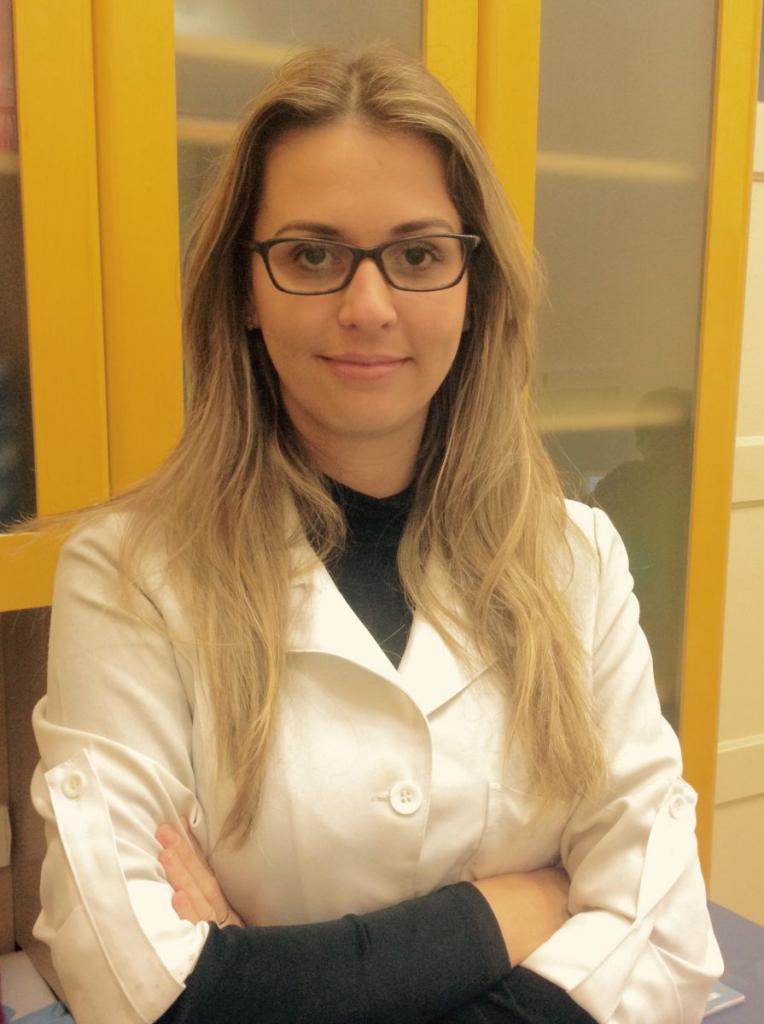 Jaqueline Raymondi Silva – Dr. Jaqueline Raymondi Silva is excited to be joining the Queen’s Department of Anesthesiology & Perioperative Medicine as a post-doctoral fellow this year. Under the supervision of Dr. Nader Ghasemlou, Dr. Silva will be able to pursue her passion for research into the impacts of pain in post-herpectic neuralgia, or shingles. While completing her doctorate at the Universidade de Sao Paulo, Dr. Silva developed a new model of this disease in the mouse. She will now bring this expertise, along with her background in somatosensory and immunology research, to Dr. Ghasemlou’s team. As part of the Ghasemlou lab, Dr. Silva will study the neuroimmune basis underlying postherpetic neuralgia using animal models, with a focus on changes to circadian rhythms. Dr. Silva’s experience in this field will be key to carrying out the Ghasemlou lab’s bedside-to-bench-and-back study, allowing her to utilize her doctoral research in a new academic community. Dr. Silva will be able to build collaborations with other Queen’s researchers and to mentor new undergraduate and graduate students entering the fields of neuroscience and immunology. The experiences and training she receives at Queen’s will support her in her goal of eventually establishing her own laboratory and research team in Brazil.
Jaqueline Raymondi Silva – Dr. Jaqueline Raymondi Silva is excited to be joining the Queen’s Department of Anesthesiology & Perioperative Medicine as a post-doctoral fellow this year. Under the supervision of Dr. Nader Ghasemlou, Dr. Silva will be able to pursue her passion for research into the impacts of pain in post-herpectic neuralgia, or shingles. While completing her doctorate at the Universidade de Sao Paulo, Dr. Silva developed a new model of this disease in the mouse. She will now bring this expertise, along with her background in somatosensory and immunology research, to Dr. Ghasemlou’s team. As part of the Ghasemlou lab, Dr. Silva will study the neuroimmune basis underlying postherpetic neuralgia using animal models, with a focus on changes to circadian rhythms. Dr. Silva’s experience in this field will be key to carrying out the Ghasemlou lab’s bedside-to-bench-and-back study, allowing her to utilize her doctoral research in a new academic community. Dr. Silva will be able to build collaborations with other Queen’s researchers and to mentor new undergraduate and graduate students entering the fields of neuroscience and immunology. The experiences and training she receives at Queen’s will support her in her goal of eventually establishing her own laboratory and research team in Brazil.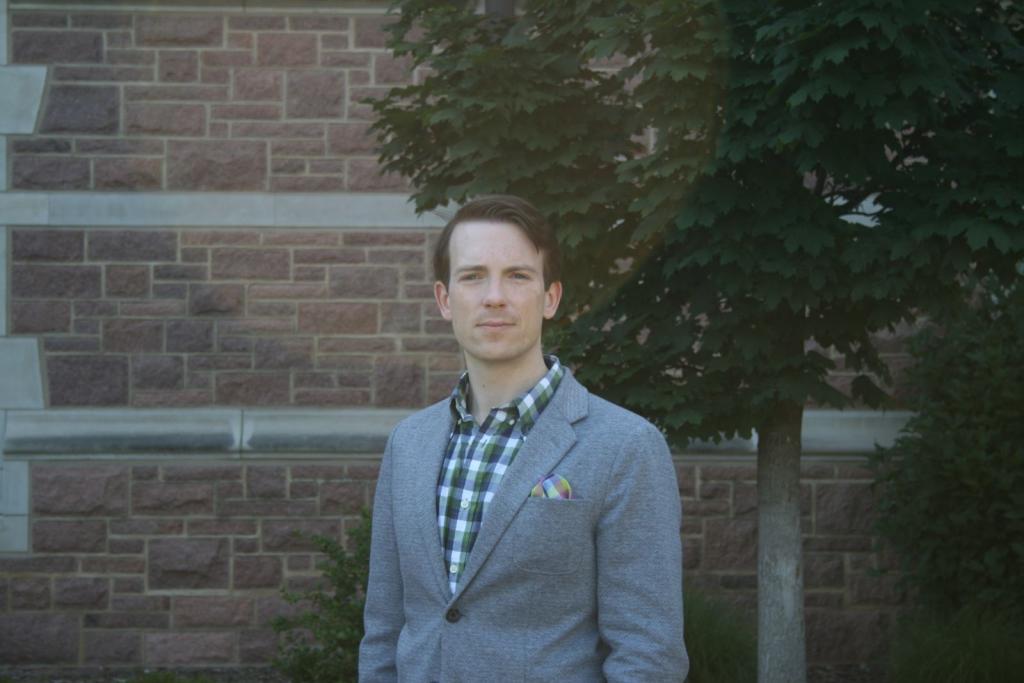 Gregory Whitfield – Beginning in August, Dr. Margaret Moore in the Department of Political Studies will see one of her past graduate students return to her as a post-doctoral fellow. Gregory Whitfield completed his Master’s at Queen’s and successfully defended his PhD at Washington University in St. Louis. His dissertation is about the connection between the theories and methods used in social science research and normative political theories and ethics, but he also has strong academic interests in the study of legal systems and Aboriginal property rights. He is thrilled to be able to apply his knowledge to Moore’s SSHRC-funded project on methods of corrective justice, where his fellowship will allow him to research normative theories that contribute to Aboriginal land claims. Considering North America’s origin as a settler nation that has struggled with Aboriginal territory ownership, Whitfield’s contribution will be very relevant to the current political landscape. Moore has identified Whitfield’s analysis as essential to covering all aspects of land rights and necessary self-government after land dispossession in her SSHRC project. Whitfield will also be able to forge new research relationships with other faculty members throughout his time at Queen’s.
Gregory Whitfield – Beginning in August, Dr. Margaret Moore in the Department of Political Studies will see one of her past graduate students return to her as a post-doctoral fellow. Gregory Whitfield completed his Master’s at Queen’s and successfully defended his PhD at Washington University in St. Louis. His dissertation is about the connection between the theories and methods used in social science research and normative political theories and ethics, but he also has strong academic interests in the study of legal systems and Aboriginal property rights. He is thrilled to be able to apply his knowledge to Moore’s SSHRC-funded project on methods of corrective justice, where his fellowship will allow him to research normative theories that contribute to Aboriginal land claims. Considering North America’s origin as a settler nation that has struggled with Aboriginal territory ownership, Whitfield’s contribution will be very relevant to the current political landscape. Moore has identified Whitfield’s analysis as essential to covering all aspects of land rights and necessary self-government after land dispossession in her SSHRC project. Whitfield will also be able to forge new research relationships with other faculty members throughout his time at Queen’s.